If you’re only just tuning in, I recently announced that I’m serializing the opening chapters of my second book, “The True American,” over the coming days here. The introductory post explaining this virtual book club is here. Today, the third installment in the series.
LEAVINGS (continued)
Before that bit of fortune could arrive, however, another would complicate it. Rais, now twenty-two, had known Abida for years, but only as an acquaintance from the neighborhood. Their relationship had consisted of passing in the galis and saying hello-hello-hi-hi at most. On auspicious occasions, his family might call on hers, or vice versa. But Rais had been out of sight at boarding school for years. When he returned home, in the middle of 1996, thinking of higher studies, he bought a computer and became taken with programming. He was into dBase and FoxPro in particular and figured they might help him get to America. One day, in one of their passing encounters, he learned that his neighbor Abida was a computer junkie in her own right and had been dBasing and FoxProing for much longer than he. They exchanged programming books, which led to Abida troubleshooting for Rais over the phone, which led to her coming over from time to time to help him in person.
“That computer brought us together,” Rais said. One day Abida, unprompted, told Rais that she used to have a crush on him back in childhood, but he was always gone, and she never had her chance. It would be an unusually forward move for a woman in that setting, but Rais insisted that this was how it happened. He asked her: “Do you still have the feeling, or is it already gone?” And he remembers that dazzling look on her face that made a man like him rush to seek his mother’s approval.
Abida soon began telling her own mother that she had classes on days when she really didn’t. She and Rais would linger at an ice cream parlor or a snack bar, or at a waterfront place called the Harbour Inn, which was owned by a retired Air Force man and where Rais was thus confident of getting service that would impress Abida. Their courtship went on for more than a year in this manner.
He found Abida “beautiful, friendly, romantic, talented, and religious-minded.” As with his mother, he struggled to describe her with richer specificity; in his corner of the world, women were often characterized in this way, judged by their skills at blending and smoothing, not by how they stood out. He did say that she was ever “in a jolly mood” and that she could “make any situation easy.” Even without talking, each knew what was running through the other’s head. “We had that kind of mental adjustment,” Rais said. The courtship was of the hybrid traditional-modern kind now gaining acceptance in Dhaka — a few droplets of allowable romance, fast merged into the rapids of arranged matrimony. It was unlike what Rais would later observe in America: “There was no checking out whether the chemistry works or not. The chemistry already worked. We are in love. It’s not that, OK, check out ten girls and find one girl. It’s not like that. We were already in love, and love is respect.”
Rais did what he believed an upstanding man in his place must do: solicit his mother’s view. “My mother is on one side of the scale and the entire world is other side of the scale, but still my mother’s side is heavier,” Rais liked to tell people. His mother was fond of Abida from what she’d seen of her growing up and from her more recent tech-support visits. Early in 1999, Rais arranged a small get-together at a restaurant for him and Abida, his brother, and his mother. The couple wanted Rais’s mother’s blessing for their relationship, and at the restaurant she formally gave it. While Abida’s mother was known to feel differently about the match, thinking Rais unworthy of her godly daughter for reasons unsaid, the young couple decided to proceed. They promised their lives and hands to each other. They would coax, outwit, and bypass dissenting elders as needed.
The fifth victory concerned a visa. Even as his relationship with Abida blossomed, Rais had been consumed by that recurring need of his: to leave. It wouldn’t be enough to fly fighter jets all his life, and wouldn’t be enough to be some plump, routinized salaryman. He wanted more — to study in America, learn computers, get in on this IT boom that had the world vibrating in the late 1990s. Or at least he could study commercial aviation over there and return home to be a pilot for Biman Airlines. He had heard, from schoolmates who emigrated and came home to tell about it, tales of abundance and greatness in places with names like St. Cloud, Minnesota.
Morning after morning, sometimes at 4 a.m., Rais joined the visa line outside the American embassy compound. Sometimes, three or four hours in, with the line finally slithering forward, he would learn that he was too far back. On other occasions, he got into the building, only to have his interviewer scoff at the notion that any young, unmarried Bangladeshi would actually study and come back to his country. To work for Biman? Yeah, sure. Visa rejected. Then again. And again. And again. And again. And again. And again.
In the meanwhile, Rais took advantage of his early adoption of technology, writing a pleading e-mail to a U.S. State Department official whose name he found on the Internet — one Cynthia Haley. His bureaucrat uncle helped him draft the message in the government-sounding language that such people use, and it elicited an encouraging but noncommittal reply: something circular and elusive along the lines of “We encourage you to go again if you feel you still have enough reason to go and apply for a visa.” Still, the fact of a reply did impress him. And when he returned to the embassy for his eighth visa interview, he found that the man of seven rejections was gone, replaced by a new officer who seemed impressed by Rais’s military background and his score on the TOEFL, or Test of English as a Foreign Language. He asked about the young man’s dream. To study aviation, Rais said. All the wiser for his previous visits, he downplayed the IT idea and added, “So I can return to fly for Biman.”
“Well, good luck with your dream, Mr. Bhuiyan,” the officer said. Visa approved.
Rais came out of the embassy into the syrupy Dhaka air and went to the home of relatives who lived close by. He asked for their prayer rug, dropped to the floor, and gave God his thanks. At home later that day, he realized that he would have to give his mother two pieces of news. The first was that he had continued pursuing a visa even after he ceased to tell her about it, since the rejections had pained her. The second was that he had gotten it. He bent and touched her feet. His father seemed skeptical at first, then incredulous at his son’s way of operating.
Wonderful news — for everyone but Abida. Now she would join the trail of people, places, and things floating in Rais’s wake. The first thing she said was “You did it!” But her feelings were “sweet and sour” at best, Rais admitted. “You’re leaving me,” she said, after behaving with due pride. She was afraid that her mother would exploit her loneliness and turn her away from Rais. He remembers her warning: “I’m not saying that I’m negative, but I’m just feeling that maybe I won’t be able to see you anymore. I’m having this feeling in the back of my mind that something’s going to happen and then we’ll never be able to be together.”
To a man of Rais’s disposition, this fear could seem like just another hurdle to jump. The anxiety seemed normal to him, even necessary. “That’s a good concern,” he told her. “Because you love me so much, you don’t want to lose me. So that’s why it’s coming in your mind. But you know me: I’m not going to go there and just forget about you. I’m coming back.” He would return, inshallah, within half a year to visit, he pledged. When he finished studying, he would fly home, persuade her mother just as he had the air secretary, and marry Abida grandly for the community to witness, maybe at the Air Force mess, perhaps on New Year’s Eve, and in the particular way they’d discussed, with lots of food given to the poor and no gifts accepted. And there in Dhaka they would weave their nest.
Then again the plan changed.
The above is the third of eight serialized excerpts from “The True American” that will appear in The Ink. Copyright 2014, W.W. Norton.
For the full book, find it below or wherever you get your books:
Indiebound
Audible audiobook
Amazon
W.W. Norton
Apple
Barnes & Noble
Books a Million
Bookshop.org


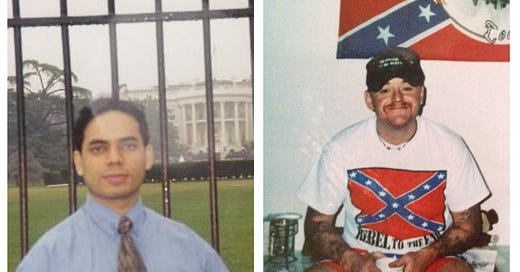








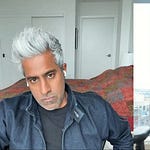
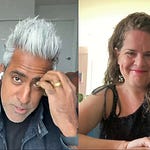


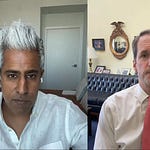
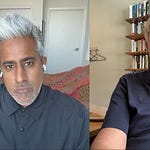
Share this post